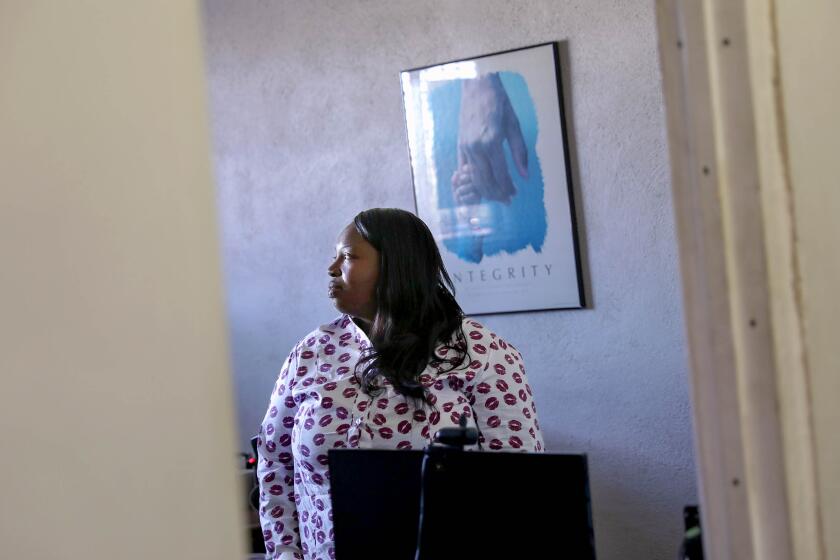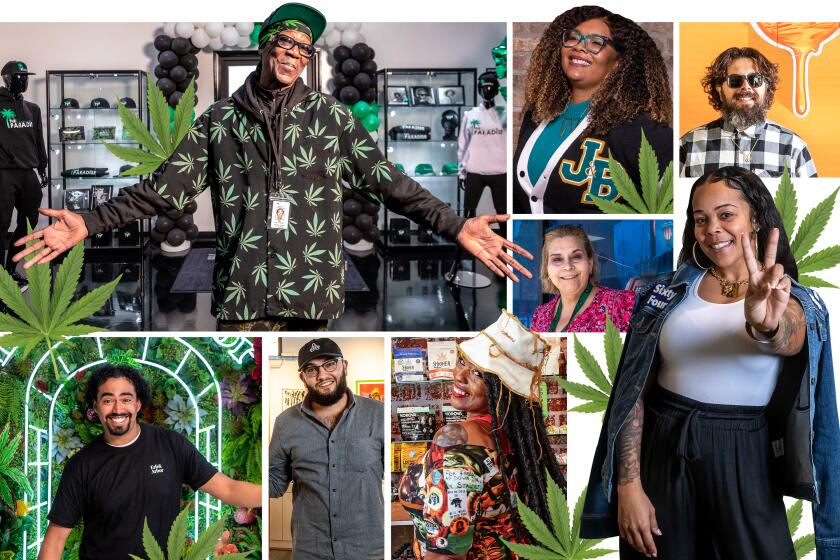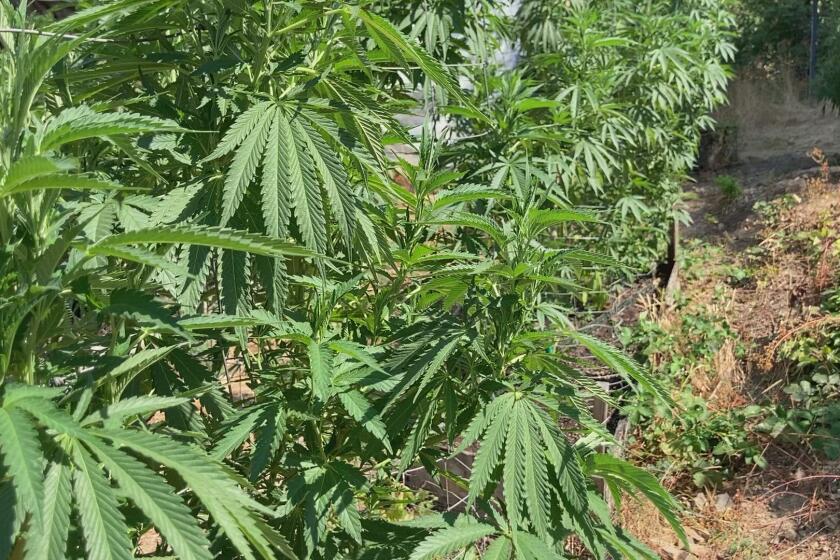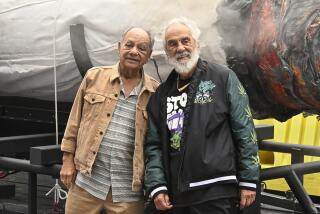Bay Area dispensary owner receives $40,000 grant through equity program he called ‘anti-white’
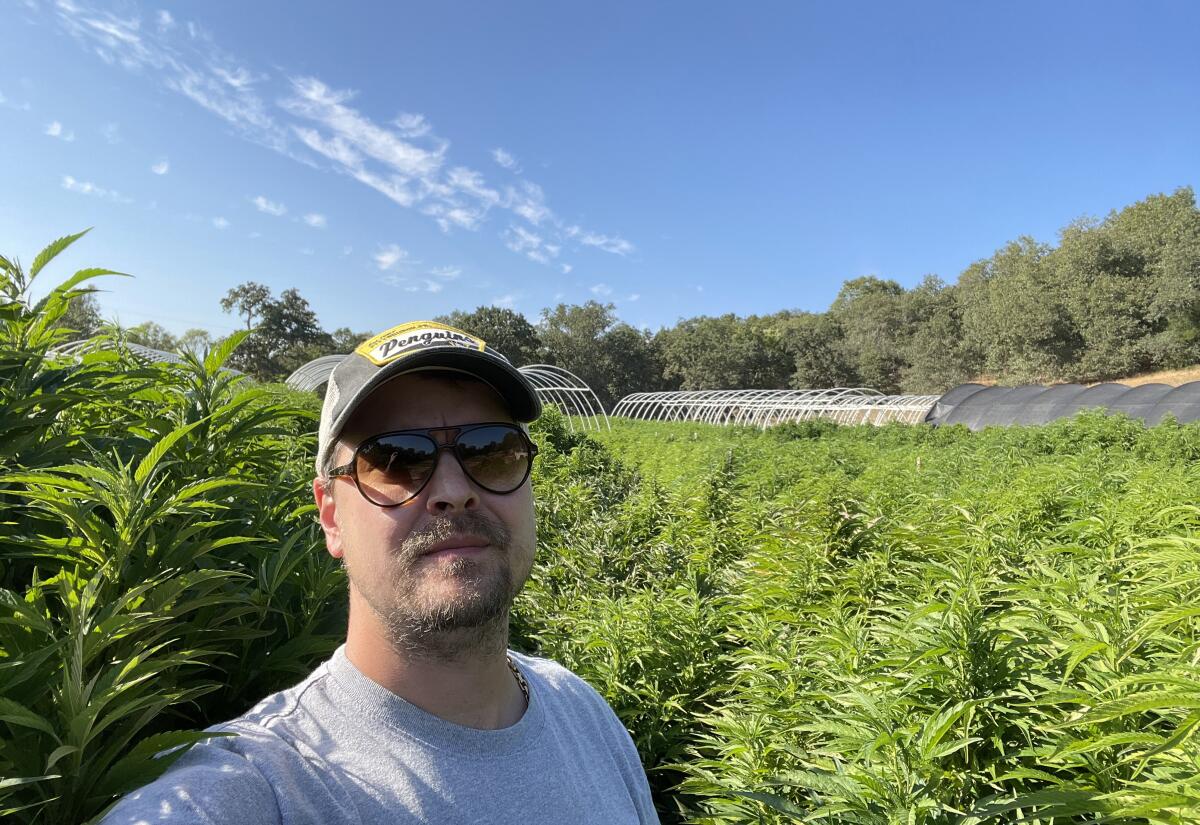
A California county has awarded $40,000 in cannabis equity grant funding to a local dispensary operator just months after he slammed that same program for allegedly discriminating against white people.
John Loe — who owns Loe Dispensary in Sonoma, about 40 miles north of San Francisco — blasted the county’s Board of Supervisors in October for what he claimed were “racist, anti-white tropes” in its grant program authorization report.
“White people will stand up,” he said at the board meeting. “You will not intimidate us.”
The promise of ‘social equity’ has been a key narrative tied to California’s legalized pot industry. So far, efforts have been mired by costly delays.
In May, the county’s cannabis equity program awarded $635,000 to 20 local cannabis operators, including Loe. Grants ranged from $18,520 to $50,270, and were awarded to those determined to have been negatively or disproportionately impacted by previous cannabis prohibition and the war on drugs, officials said.
Though, the program itself has undergone public scrutiny for granting funding to some of the most successful operators in the county’s cannabis industry, according to the Sebastopol Times.
“This grant program aims to serve socioeconomically disadvantaged individuals navigating the cannabis permit process,” Supervisor David Rabbitt said in a statement announcing the funding.
The program requires the grantee, or a member of their family, to have been arrested or convicted of cannabis-related offenses between 1971 and 2016. The application does not require candidates to submit information about their race.
“The county does not take race into account when reviewing applicants for the cannabis equity program,” said county spokesperson Matt Brown.
Opening a cannabis dispensary with a social equity license in Los Angeles takes endurance. Here are resilient owners who fought hard to run pot shops.
The county in its grant authorization report noted that Latinx and low-income populations have been disproportionately impacted by the war on drugs, and that “wealthy, white stakeholders increasingly own the county’s licensed cannabis landscape, whose investments in land and resources result in limited opportunities for small cannabis operators.”
Loe called this language racist at the October board meeting and threatened to take legal action against the county after board members attempted to cut his public comment time short. In an interview with The Times on Wednesday, he said he is in the process of vetting civil rights lawyers to file a lawsuit.
He added that he has been the target of threats and attacks from people calling him a white nationalist since local news covered the October board meeting, as well as his grant award.
“When I say, ‘white people will stand up,’ that doesn’t mean I’m a white nationalist,” he said. “There’s a double standard and culture of intimidation and harassment against whites.”
He also claimed the program did use race as a factor to assess applicants, despite the county’s denial.
“The goal is to intimidate whites for being involved in these kind of programs,” he said. “They harass people like me who stick up for themselves and others.”
Sonoma County supervisors created an Office of Equity in 2020 and a “racial equity toolkit” the following year that requires proposed programs to outline how they will help advance racial equality in the community.
California’s legalization of recreational cannabis in 2016 ushered in a multibillion-dollar industry. But many of the promises of legalization have proved elusive.
In Loe’s grant application, submitted on Jan. 22, he called the racial equity toolkit illegal and wrote that “this racist policy will be exposed.” He further attacked the program for requiring applicants or one of their family members to have been arrested due to cannabis-related activity, though he noted he qualified because of his brother’s cannabis-related arrest.
“I had to work very [hard] to keep from getting arrested,” he wrote. “The idea that I wasn’t harmed by criminalization is racist and I will not stand by while this county discriminates against whites and against non-criminals.”
Loe requested $1 million to make up for wildfire damage and an approximately four-year delay in relief due to issues with cannabis permit processing. He said he believes the county’s permit office “picks winners and losers” and holds white operators’ projects back for political reasons.
“You are hated by all of us for good reason,” he wrote in his application to the board. “You will be held accountable... With Minimal Respect, John Loe.”
More to Read
Sign up for Essential California
The most important California stories and recommendations in your inbox every morning.
You may occasionally receive promotional content from the Los Angeles Times.
